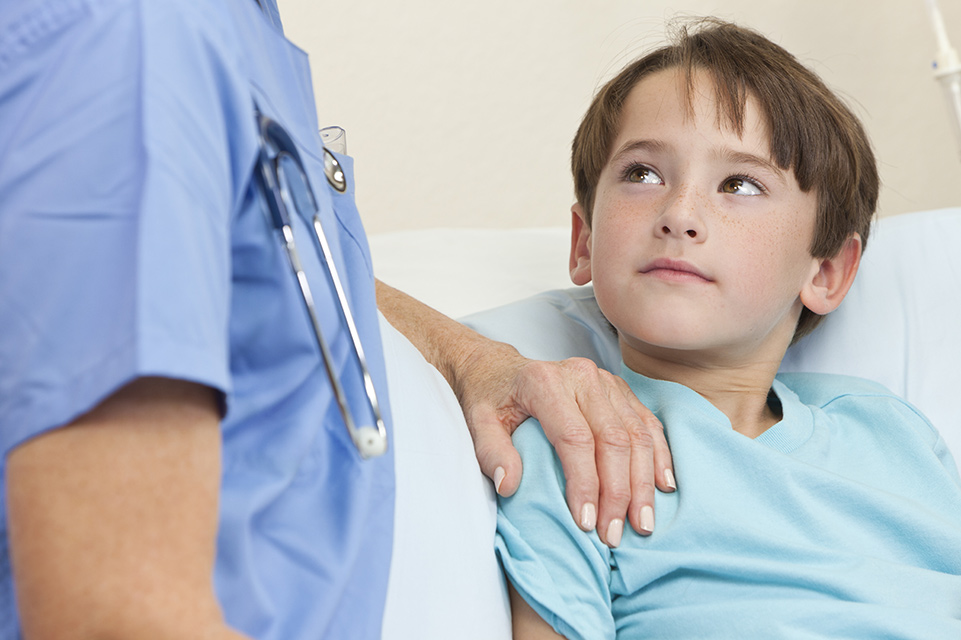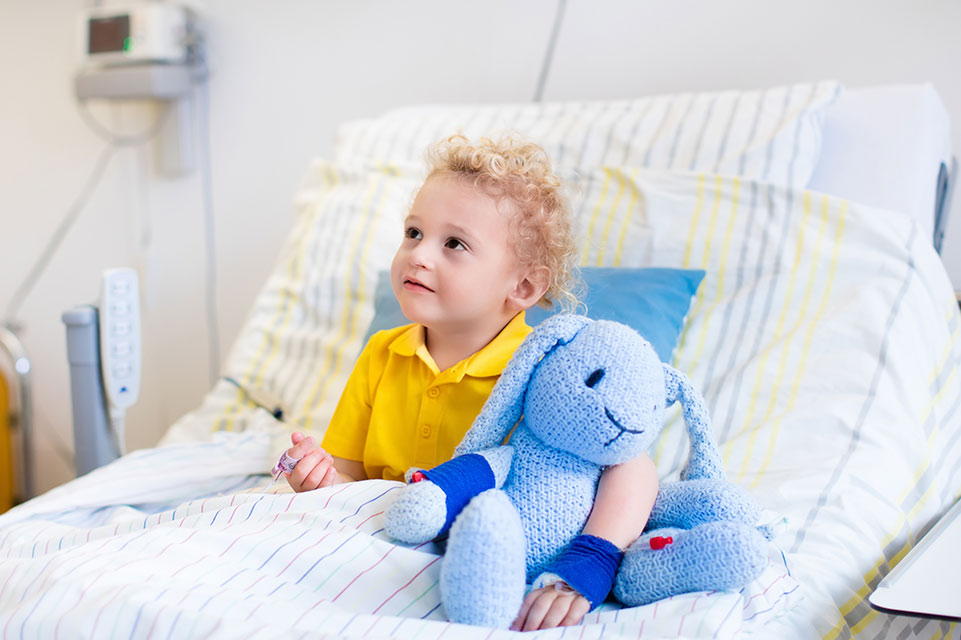Fecal Incontinence Care
Shriners Children's provides specialized care for children with fecal incontinence.
The goal of our colorectal and gastrointestinal specialty program is to provide children with anal-rectal disorders advanced care and rehabilitation that frees them from social stigma and allows them to live and play like other children.
What is Fecal Incontinence?
Fecal incontinence (accidentally having bowel movements) is a very common problem in children. It can be caused by medical conditions like chronic constipation or congenital (happening before birth) conditions like spina bifida, anorectal malformations or Hirschsprung disease that may disrupt normal bowel control.
There are two types of fecal incontinence:
- True fecal incontinence occurs in children who do not have the normal mechanisms needed for controlling their bowel movements. Typically, these children have anorectal malformations (imperforate anus), Hirschsprung disease or spinal problems that prevented their bodies from developing normal bowel structures or control of those structures.
- Pseudoincontinence or encopresis typically occurs in children with the ability to toilet train but who have developed severe, chronic constipation, which leads to stools that are infrequent or hard to pass. It can also occur in children with anatomical abnormalities that predispose them to developing constipation.
What are the Symptoms of Children With Fecal Incontinence?
The symptoms of fecal incontinence depend on what type of the condition a child has. For some children they have an urge to have a bowel movement that comes on so quickly a child can't make it to the toilet in time and for other children, they frequently soil their underwear with stool without realizing it.
How We Care for Children With Fecal Incontinence
Fecal soiling can cause children intense embarrassment and social problems, and it can be frustrating for both parents and children. The good news is that with patience, encouragement and the right treatment, most children can develop good bowel control and live normal lives.
True Fecal Incontinence
- While surgical repair can help restore bowel function for children with anorectal malformations and Hirschsprung disease, it cannot always insure bowel control. Children with true fecal incontinence can also be classified as having a slow or fast bowel and the treatment for each is different. Through a bowel management program or rarely, surgery, children with true fecal incontinence can successfully manage bowel movements and avoid soiling.
Pseudoincontinence or Encopresis
- While most of these children have the ability to control their bowel movements, they become so constipated that stool impacts and then overflows. Treatment is focused on preventing constipation and can be done through diet and medications. In some cases a bowel management program can be used to identify the correct medication dosage, and rarely, in very severe cases, surgery may be needed to help normalize bowel function and help prevent soiling.
We provide follow-up care to monitor your child’s health, prevent problems, manage symptoms and give your child the best quality of life.
Specific treatments and services may vary by location. Please contact a specific location for more information.
Understanding Your Child's Colorectal & Gastrointestinal (GI) Appointment(s)
On the first visit, parents and children typically come for a group or individual overview and educational presentation about bowel management. Our doctors and nurses explain the medicines, enemas and diets we use as treatment options. Each family has a one-on-one clinic visit with a provider from the program to make a plan for their child.
If referred to one of our locations for a more complex condition or surgery, you and your child go directly to the one-on-one visit with one of our providers to build an individualized plan of care.
Sometimes, when deemed appropriate, your child may have bowel X-ray. This helps us with diagnoses and check whether your child’s plan is working. A nurse from our program will talk with you either in person or by phone to discuss your child’s results.
Our goal is for your child to empty their bowel daily with no accidents and to live with as few limitations as possible. Success depends on your child’s condition and following your plan closely.
How We Support Your Child’s Total Health and Well-Being
Families and patients say that Shriners Children’s feels like home to them, and it's no wonder to us. We know that a child's needs go beyond the physical. Our care teams support their social, emotional and developmental health with patient programs and activities.
A few examples include:
- Child life enrichment
- Creative arts
- Live entertainment
- Music therapy
- On-site public schooling
- Pet therapy
- School and community re-entry program
- Specialty camps
- Therapeutic recreation
The dietitians at Shriners Children's do an especially good job. They would visit us every day to give us advice on what foods were best for Jordyn’s digestive system. They recommended food combinations that helped her digestion work well.

A Bowel Management Program Made for Children
Treatments for Fecal Incontinence
View All Related Treatments
Anoplasty

Colonic Irrigation

Colon Resection

Gastrostomy Tube Placement

Ileostomy

Ostomy Creation and Closure

Rectal Botox


